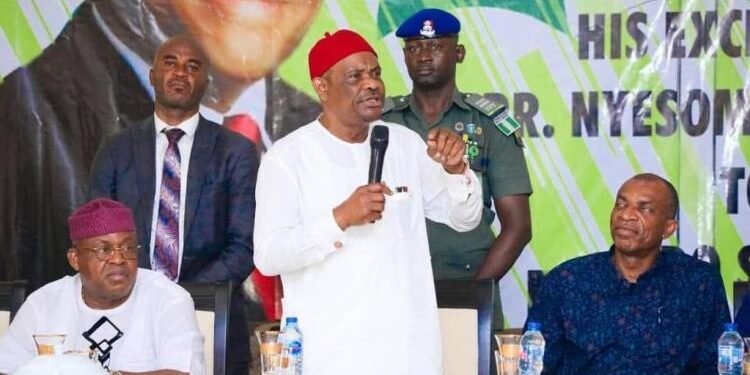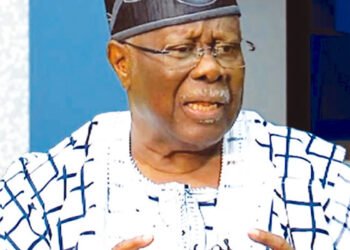Opinion | By Ismaila Ramon | 24. 04. 2022
In 2008, when it became clear to analysts of the United States presidential election that Senator Barack Obama could surpass their expectations and beat favorite Hillary Clinton to the ticket of the Democratic Party, Hillary’s team decided to float a kite aimed at halting the rapid disintegration of her image as the leader of the race.
She, alongside her husband Bill, would offer Senator Obama a place on the ticket she had yet to win as the Vice President. “We would make a good team,” went the message that was repeated by operatives of Hillary Clinton who doubled down on the claim that although Obama had caused enough ‘trouble’ to render useless any idea of a confident walk to victory, he lacked the political strength to go all the way and would therefore avoid defeat by settling for a place by Hillary’s side as her Deputy.
In reality, this Greek gift from Hillary Clinton was a tacit admittance of Obama’s formidability, a roundabout way of confessing her dread that this fluent and charismatic Senator from Illinois was carting away all the delegates and unless stopped and recruited onto their side, he possessed the network and popularity to land them on their butts.
This reality was not lost on Senator Obama. In his rejection of the offer, he described it as an attempt by Hillary to “hoodwink” and “bamboozle” voters into thinking she was the front-runner.
As it was in 2008 in America, so it is today in Nigeria. A similar sequence of events is playing out in the Peoples Democratic Party (PDP), Nigeria’s main opposition party. Governor Nyesom Ezenwo Wike of Rivers State, who is one of the aspirants seeking the nod of delegates to emerge as the party’s presidential candidate in 2023, is facing a similar situation.
Alarmed by the momentum of his campaign, his opponents are planting reports that the aspirant, who has established a leadership position in the race, is in fact angling to be the Vice President; that is, the end goal of his so far successful campaign and national consensus-building is to negotiate the Deputy slot on the winning ticket.
Responding to the claim last weekend while engaging party delegates in Anambra, Governor Wike said: “When you see somebody who wants to run for election, you will know. I am not running for election to be vice president to anybody.”
“I didn’t collect any form that if I don’t win, I will go to the Senate. I am not going anywhere. The only thing that I will run for and I will win is the presidency of the country.”
Indeed, nothing in the aspirant’s campaign, or his political style famous for its bluntness and straight-talking, suggests that he is nursing any other ambition beyond the one he has declared: to win the Presidency.
Furthermore, his success on the campaign trail as both the most followed and talked about aspirant makes doubtful the possibility of him conceding the first position to any other aspirant.
If in fact, he set out to achieve the goal of deputizing the winner, his interaction with delegates across the country must have convinced him otherwise and revealed the obvious fact that his charisma and message can give him victory.
So why has this claim persisted despite the aspirant’s repeated and total rejection of it, and why is Wike the target of such accusation despite the presence of other aspirants in the race?
It is for the same reason Hillary overlooked all the other aspirants in 2008 and zeroed in on Obama; Governor Wike is in pole position and offers the greatest threat to those who, initially blinded by conceit and an inflated sense of their influence within the party, are now coming to the reality of their vulnerability.
It’s hardly surprising that the delegates across the country have latched on to Governor Wike. Unlike those who took their support for granted and spent the years preceding the election on a voyage, ignoring the party and its issues; Governor Wike has stood courageously as a leader for all.
At great personal cost, he has advanced the party’s interests and is the reason it remains alive today, worthy of the title “opposition”. As a result, he has earned enormous social capital with loyalists of the party in all regions of the country, likewise ordinary Nigerians.
When Nigerians needed to hear an alternative voice and looked to the PDP for a rebuke of the many failures of the APC administration on the economy and security, it was Wike they saw and learned to count on.
He would not hide his message behind terse statements lacking real bite, as is common with others who lay claim to being in the opposition but actively sought acceptance and patronage from the ruling party.
Direct and frank, Wike gets to the heart of the matter, voicing the frustrations of the common man and taking on the ruling party in defense of Nigeria’s democracy and the rights of the citizens to a prosperous and secure life.
Also important is the fact that his emergence would best satisfy the PDP’s constitutional obligation of equity, fairness, and justice. Being from the historically marginalized South-South region of the country, in addition to the fact that the party’s last candidate was from the North, means that all the cards are objectively in his favor.
Watching Wike marshal these arguments in his engagements with delegates to the applause of Nigerians has filled his opponents with dread. Hence the attempt to condition the mind of delegates to put him down as Vice President ahead of the primaries contest.
It is both an attempt at altering perception and an offer. But it is one Wike has rightly rejected. Crucially too, by doing so, these individuals, like Hillary and her team in 2008, have let slip the fact that Wike’s winning message is the reason for their sleepless nights.
In trying to derail his campaign, they underscore his strengths and bright chances of victory.










